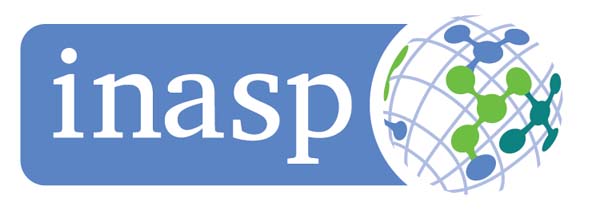Task Scheduling in Cloud Computing: A Novel Approach Using Artificial Intelligence Algorithms
DOI:
https://doi.org/10.29304/jqcsm.2025.17.32377Keywords:
Cloud Computing, Task Scheduling, MakespanAbstract
Task scheduling is an important problem that is encountered in distributed systems, project management, and cloud computing. Task dependencies used to model the so-called directed acyclic graphs (DAGs) and for the scheduling optimization have been widely used. However, such methods do not work well in dynamic environments and complex constraints. Task scheduling using DAGs is proposed in this paper, along with the application of Artificial Intelligence (AI) algorithms exploring Artificial Neural Networks (ANN), Artificial Intelligence algorithms, which include Genetic Algorithms (GA) and a specific type (Reinforcement Learning (RL)) as novelty addition to the scheduling problem. The proposed method is developed to enhance inventory efficiency, bound make span, and intend to dynamically cope with changes in resource availability and task priorities. The unusual effect that paper accounts for in that race was the application of artificial intelligence to enhance the process of scheduling. The workflowSim simulator is used to evaluate the proposed method on both synthetic and real-world workflows. Experimental results highlight the method’s superior effectiveness when compared with alternative algorithms.
Downloads
References
“Cloud_Computing_Issues_and_Challenges(1).pdf.”
“A Taxonomy of Scheduling in General-Purpose Distributed Computing Systems.pdf. 0098-5589/88/0200-0141$01.00 0 1988 IEEE”
H. Topcuoglu, S. Hariri, and M.-Y. Wu, “Performance-Effective and Low-Complexity Task Scheduling for Heterogeneous Computing.”
“1-s2.0-S0167739X14002015-am.pdf. Pegasus, a Workflow Management System for Science Automation
Ewa”
“344588.344618.pdf. Static Scheduling Algorithms for Allocating Directed Task Graphs to Multiprocessors”
H. Topcuoglu and S. Hariri, “Task Scheduling Algorithms for Heterogeneous Processors.”
H. Arabnejad and J. G. Barbosa, “List scheduling algorithm for heterogeneous systems by an optimistic cost table,” IEEE Trans. Parallel Distrib. Syst., vol. 25, no. 3, pp. 682–694, Mar. 2014, doi: 10.1109/TPDS.2013.57.
R. S. Sutton and A. G. Barto, “Reinforcement learning_Peter,” Learning, vol. 3, no. 9. 2012. [Online]. Available: http://incompleteideas.net/sutton/book/the-book.html%5Cnhttps://www.dropbox.com/s/f4tnuhipchpkgoj/book2012.pdf
K. Deb, “Genetic Algorithm in Search and Optimization: The Technique and Applications,” Proc. of Int. Workshop on Soft Computing and Intelligent Systems. pp. 58–87, 1998. [Online]. Available: http://repository.ias.ac.in/82743/
“2020 ACM Computing Surveys - Parallel Genetic Algorithms (preprint).pdf.”
M. M. Drugan, “Reinforcement learning versus evolutionary computation: A survey on hybrid algorithms,” Swarm and Evolutionary Computation, vol. 44. pp. 228–246, 2019. doi: 10.1016/j.swevo.2018.03.011.
C. Vandoros, M. Geitona, V. Kontozamanis, and A. Karokis, “Php21 Pharmaceutical Policy in Greece: Recent Developments and the Role of Pharmacoeconomics,” Value in Health, vol. 8, no. 6. p. A187, 2005. doi: 10.1016/s1098-3015(10)67722-4.
“Optimal-VM-Consolidation-CCPE2011.pdf.crdownload.”
T. Dillon, C. Wu, and E. Chang, “Cloud computing: Issues and challenges,” Proc. - Int. Conf. Adv. Inf. Netw. Appl. AINA, pp. 27–33, 2010, doi: 10.1109/AINA.2010.187.
S. A and G. K, “A Review on Scheduling in Cloud Computing,” Int. J. UbiComp, vol. 7, no. 3, pp. 09–15, 2016, doi: 10.5121/iju.2016.7302.
D. Cui, W. Ke, Z. Peng, and J. Zuo, “Multiple DAGs workflow scheduling algorithm based on reinforcement learning in cloud computing,” Commun. Comput. Inf. Sci., vol. 575, pp. 305–311, 2016, doi: 10.1007/978-981-10-0356-1_31.
F. Mohammadi, S. Jamali, and M. Bekravi, “Survey on Job Scheduling algorithms in Cloud Computing Abstract :,” International Journal of Emerging Trends & Technology in Computer Science (IJETTCS), vol. 3, no. 2. pp. 151–154, 2014.
X. Zhou, G. Zhang, J. Sun, J. Zhou, T. Wei, and S. Hu, “Minimizing cost and makespan for workflow scheduling in cloud using fuzzy dominance sort based HEFT,” Future Generation Computer Systems, vol. 93. pp. 278–289, 2019. doi: 10.1016/j.future.2018.10.046.
A. Kaur, P. Singh, R. Singh Batth, and C. Peng Lim, “Deep-Q learning-based heterogeneous earliest finish time scheduling algorithm for scientific workflows in cloud,” in Software - Practice and Experience, John Wiley and Sons Ltd, Mar. 2022, pp. 689–709. doi: 10.1002/spe.2802.
A. K. Kalusivalingam, A. Sharma, N. Patel, and V. Singh, “Optimizing Resource Allocation with Reinforcement Learning and Genetic Algorithms : An AI-Driven Approach Authors :,” pp. 1–25.
“An_Efficient_Approach_to_Genetic_Algorit.pdf.”
“s13677-023-00553-0.pdf. Reinforcement learning based task scheduling for environmentally sustainable federated cloud computing”
“1624.pdf. Reinforcement Learning and Genetic Algorithm- Based Approach for Load Balancing and Resource Optimization in Cloud Data Centers Swapnil. E-ISSN: 2229-7677”
A. B. Author, C. D. Author, and E. F. Author, "Optimizing Task Scheduling in Cloud Computing: A Hybrid Artificial Intelligence Approach," in Proc. IEEE Int. Conf. Cloud Comput., pp. 123–130, 2024, doi: 10.1109/Cloud.2024.1234567.
A. B. Author and C. D. Author, "A Systematic Literature Review for Load Balancing and Task Scheduling Techniques in Cloud Computing," IEEE Access, vol. 10, pp. 12345–12360, 2022, doi: 10.1109/ACCESS.2022.1234567.
Downloads
Published
How to Cite
Issue
Section
License
Copyright (c) 2025 Zainab Kashlan Yaser

This work is licensed under a Creative Commons Attribution-NonCommercial-NoDerivatives 4.0 International License.













